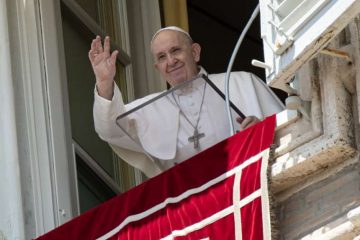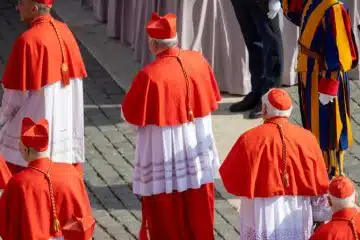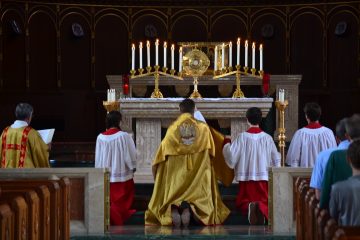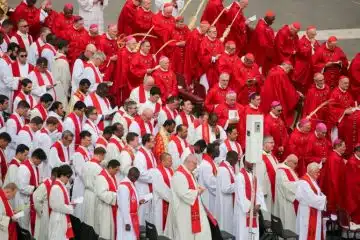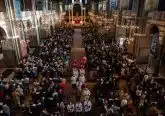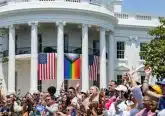Hong Kong democracy protestors sentenced to months in prison
CNA Staff, Dec 2, 2020 / 01:05 pm MT (CNA).- Three Hong Kong pro-democracy activists, including a Catholic university student, were sentenced to prison on Wednesday for participating in illegal protests.
Democracy activists Joshua Wong, Agnes Chow, and Ivan Lam were sentenced to 13.5 months, 10 months, and 7 months, respectively, in prison. They had each pled guilty last month to taking part in an “illegal assembly,” for which they were arrested in August under a new national security law imposed on the region by Beijing.
Chow, 23 years old, is a Catholic university student who co-founded a pro-democracy political party along with Wong. She has been an outspoken advocate for civil rights.
Political leaders from the United States and Great Britain decried the sentencing of the three activists.
“The sentencing of Joshua, Agnes, and Ivan reminds us of the courage and perseverance of Hong Kongers as well as the failure of Hong Kong’s government to uphold its commitments to its citizens,” said Sen. Marco Rubio (R-Fla.), co chair of the Congressional-Executive Commission on China (CECC).
Sen. Josh Hawley (R-Mo.) tweeted that Beijing “continues to violate its treaty obligations & destroy the liberties of its people, including this latest crackdown in Hong Kong.”
“Hong Kong’s authorities should be proud to have young people like Joshua who champion democracy, liberty, and the rule of law. Instead, on the orders of the Chinese Communist Party, they lock them up and persecute them,” stated the website of Lord Alton of Liverpool, a Catholic who sits as an independent crossbench Peer in the UK House of Lords.
The bishop emeritus of Hong Kong, Cardinal Joseph Zen, criticized the crackdown in Hong Kong by Beijing in an interview published on Nov. 22.
“Even people outside of the Church, they say ‘Why isn’t your pope saying anything against what China is doing?’,” Zen said in a video clip released Nov. 22. “It’s very sad.”
There were massive pro-democracy protests in Hong Kong in 2019, when the legislature of the special autonomous region was considering an unpopular bill allowing the Chinese mainland government to extradite criminals from Hong Kong.
The region was controlled by Great Britain until 1997, when it was transferred to China under an agreement that it would retain its independent economy and political system—“one country, two systems.”
Many Catholics and other Christians took part in the democracy protests in 2019. The extradition legislation was eventually pulled, but the National People’s Congress in mainland China then brought up a new National Security law in 2020 to impose changes on Hong Kong.
The measure passed overwhelmingly by the mainland legislature in May, sidestepping the Hong Kong legislature and criminalizing anything considered by Beijing to be “foreign interference” or subversion of state power. It also allowed Chinese security forces to operate in the city.
The law broadly defined unlawful acts of terror to include arson and vandalizing public transportation “with an intent to intimidate the Hong Kong government or Chinese government for political purposes.” Charges of secession under the law could include displaying or chanting slogans such as “Free Hong Kong.”


